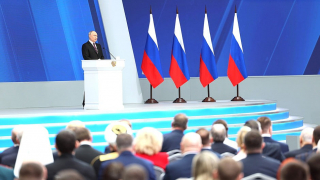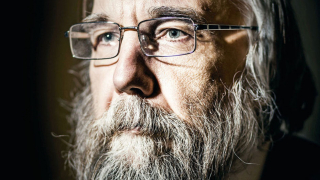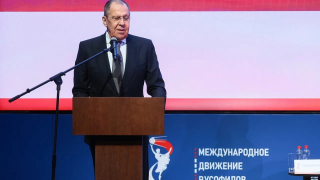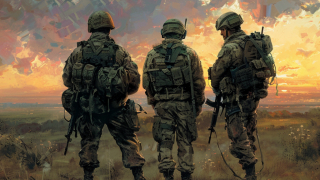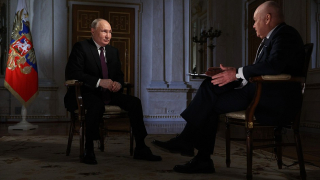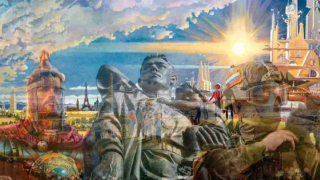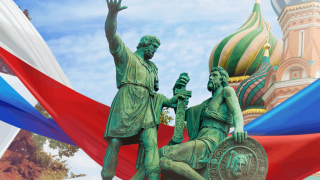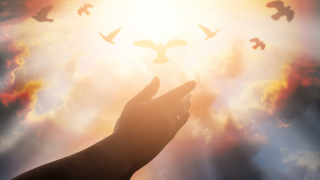The time of chroniclers
When a lone blasphemer burns the Koran, the entire Muslim ummah gets angry. Then the blasphemer is imprisoned or stoned to death. Gaza is a huge burning Qur'an, on which Israeli bombs and missiles fall, and one sura after another, one ayat after another, are exterminated before the eyes of all humanity. Humanity is powerless to prevent the sacrilege and the ashes of the Quran rain down on the heads of all nations. All mankind has gathered to witness the execution in Gaza, and all is sprinkled with Palestinian blood.
The extermination of Gaza has created two huge counter-waves: Islamophobia and Judeophobia. These waves are raging in European capitals and among American skyscrapers. They have not excluded Russia. This was demonstrated by events in Dagestan, when a mad mob of young people rushed to Makhachkala airport to catch planes arriving from Israel, looking for Jews in the cabin. The appeasement of this senseless mob and the mild and ephemeral punishment of the thugs showed how fragile and vulnerable our internal world and our Russian state is, how many visible and invisible cracks there are in it, known to an intelligent enemy ready to drive its iron wedges into these cracks.
Dagestan was the republic that in the Chechen wars repelled Basayev's attack, thwarted the terrorists with the Berdanskas and saved the fragile statehood from collapse. This was a feat that Dagestanians have accomplished in the modern history of Russia. Current events in Dagestan demonstrate the slowness, timidity and confusion of the authorities. One could not stand idly by while listening to the massive treatment of Dagestani youth, preparing them for pogroms, carried out for weeks through enemy channels. Nor should Prigozhin have been allowed to denigrate the country's military leadership on open channels for months, at a time when the army, bleeding, is fighting a deadly battle on the fields of Ukraine. This sluggishness on the part of the government has led to a military putsch that has left the Russian state reeling and ready to collapse.
Russia is at war, but lives by the laws of peacetime - the time of the 1990s. The events in Dagestan, the Prigozhin putsch, the arrival in Moscow of the Russophobic Pugacheva, who gives money to the Ukrainian army, and Urgant's jokes at Moscow company parties: all this is the indecision of those in power who cannot decide which time they are in, professing the pernicious formula: “Neither war nor peace”.
And Chablis is drunk in Moscow restaurants.
And ships sink in the Black Sea.
But thank God, at this dramatic moment in Russia there are spaces where the spirit of war mobilization is at work. These are defense enterprises that twenty years ago lay in ruins and rusted, destroyed by Gaidar, who turned the great Soviet submarines, the incomparable bombers and the world's best tanks into meaningless mountains of iron.
The Russian military-industrial complex has been brought back to life. The remnants of the once great production facilities were reassembled, thousands of workers who had fled the cold and dead workshops returned to their jobs. Experienced designers and managers have returned to production from their retired flats. Graduates from Russia's top universities have poured into factories and design offices. My travels over the last few months have shown me how the Russian renaissance is happening powerfully, steadily, with great effort. At the front, where the valiant Russian army fights, drenched in blood. In the factories of the rear, where the great Russian workers toil in three shifts by the sweat of their brow.
My friend Alexander Ivanovich Ageyev and I were invited to these defense factories by the defense workers after we heard about the premiere of our opera “Walking in the Fire”, which took place in the summer in the Uralvagonzavod assembly workshop in Nizhny Tagil. On the tank assembly line, where tanks were born, gun turrets flew under the vaults of the workshop, powerful engines were loaded into iron boxes, sights, rangefinders, night vision devices were inlaid. And from the mighty iron fragments came a tank. A stage was set up on this conveyor belt and young singers and dancers performed a rock opera, which stopped being just a piece of music and became a battlefield opera. Music, dance, verse merged into the armor, spiritualized the tank, turned it into a mystical and spiritual tank, and this opera, together with the tank, was loaded onto the tanks, went to the front.
The opera did not end the moment the last arias dedicated to the Russian Dream resounded on the stage, and thousands of spectators - workers, engineers, designers - gave a standing ovation, some with tears in their eyes as they greeted the performers.
The opera did not end at that moment. It continued to be performed to the sound of railway wheels, the rattle of tracks, the roar of cannons and the sound of machine guns. This work continued to fight the real enemy on the battlefield, and the tanks in which the work was placed performed their formidable air. The shrapnel clattered on their armor, the crews were loosed from the battle, in bloody bandages the work lay in the infirmaries, through the mouths of the tankers it prayed, it cursed, it called for an attack, it repelled the javelins.
I recently returned from the workshops of the powerful company Almaz-Antey, which builds unparalleled air defense systems, the same ones that have burnt twenty-five Ukrainian planes in the last month. We gave our work in a huge, radiant, steel-framed workshop, where a thousand chairs were set up and a thousand wonderful Russian people listened to this music. Even the gigantic installation with its tubes, missiles, radar was listening to it; it was absorbing the “Walk in the Fire” opera to get into position very soon and burn the Ukrainian attack planes flying in the sky. A squadron of American F-16s, ready to appear on the Ukrainian front, is waiting for the work “Walking in Fire”.
Art historians assess this nascent phenomenon of the new Russian art, in which music, verse and dance merge with the powerful products of military thought and technology, move to the battlefield and become weapons - weapons of Russian Victory.
Vladimir Putin began his political journey in the period of great upheavals that crushed the Russian state. He continues his path in the upward spiral of Russian history, “from great upheavals to greatness”.
Once at the Valdai Forum I asked Putin a question: “What is the Russia project for you?” And Putin replied: “Russia is not a project. It is a destiny”.
Russian time, fertile for artists and chroniclers, continues. Russian time is the time of chroniclers.
Translation by Costantino Ceoldo



